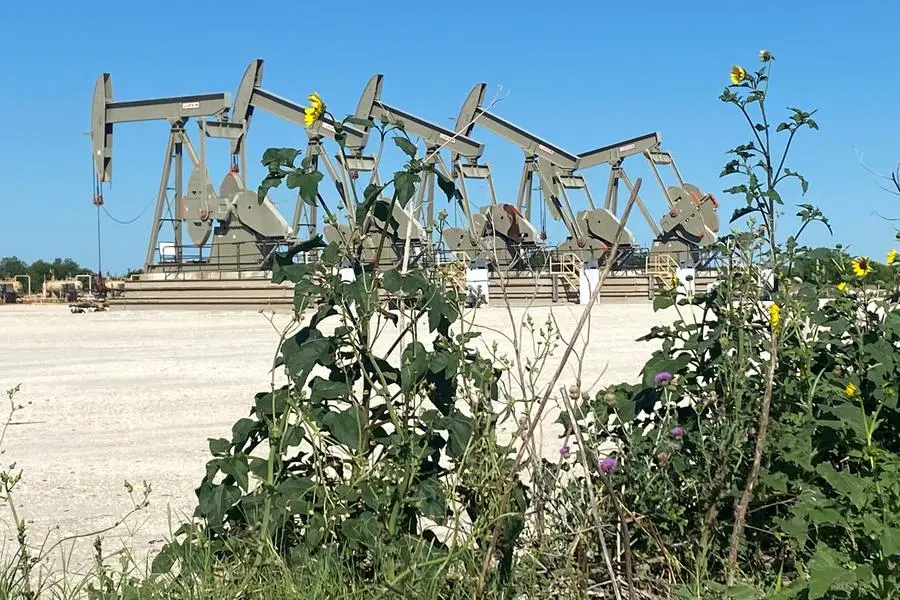PHOTO
Oil prices rose on Thursday on investor concern that a widening Middle East conflict could disrupt crude oil flows from the region, though a stronger global supply outlook kept a lid on gains.
Brent crude futures were up $1.41, or 1.91%, at $75.31 a barrel by 1050 GMT. U.S. West Texas Intermediate crude futures rose $1.45, or 2.07%, to $71.55.
Market fears are mounting over the possibility that Israel might target Iranian oil infrastructure, raising the spectre of retaliation from Iran.
There are concerns that such escalation could prompt Iran to block the Strait of Hormuz or attack Saudi infrastructure, as it did in 2019, said Panmure Gordon analyst Ashley Kelty.
The strait is key logistical chokepoint through which a fifth of daily oil supply passes.
Israel bombed Beirut early on Thursday, killing at least six people, after its forces suffered their deadliest day on the Lebanese front in a year of clashes with Iran-backed Hezbollah.
Israeli Prime Minister Benjamin Netanyahu said Iran would pay for its missile attack against Israel on Tuesday while Tehran said that any retaliation would be met with "vast destruction", raising fears of a wider war.
"From here, it's a waiting game to see what the Israeli response will be and I suspect that comes after the conclusion of the Rosh Hashanah holiday tomorrow," said IG market analyst Tony Sycamore, referring to the Jewish New Year.
"We could see oil prices come off and the geopolitical premium built-up in prices fade, should Israel decide to press its advantage against Hezbollah in southern Lebanon rather than retaliate directly on Iranian soil or assets," said Harry Tchilinguirian, head of research at Onyx Capital Group.
Meanwhile, U.S. crude inventories rose by 3.9 million barrels to 417 million barrels in the week ended Sept. 27, the Energy Information Administration said, compared with Reuters poll expectations of 1.3 million barrel decline.
"Swelling U.S. inventories added evidence that the market is well supplied and can withstand any disruptions," ANZ analysts said in a note.
Fears have been tempered by OPEC oil output capacity and the fact that global crude supplies have yet to be disrupted by unrest in the key producing region.
OPEC has enough spare capacity to compensate for a full loss of Iranian supply if Israel knocks out that country's facilities.
(Reporting by Arunima Kumar in Bengaluru, Gabrielle Ng in Singapore and Georgina McCartney in Houston; editing by Mark Potter, Jason Neely and David Goodman)





















